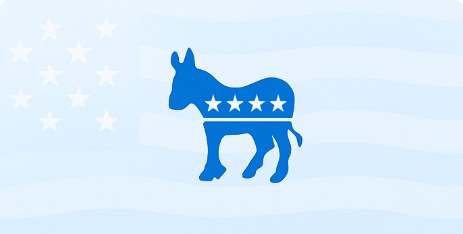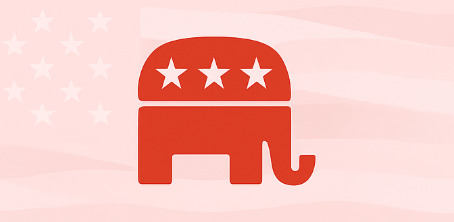How News Sources Portray Anti-Discrimination Laws Policies
This chart shows how major news sources across the ideological spectrum frame anti-discrimination laws policies, from left to right-leaning perspectives.
Media literacy is indispensable in navigating political topics and forming informed opinions while mitigating bias in news media. Recognizing the policy stances held by various sources and political groups helps in developing informed opinions and engaging thoughtfully with current issues, including Anti-Discrimination Laws, also referred to as Non-Discrimination Policies.
Anti-discrimination laws are policies designed to prevent discrimination against groups in matters of economic, social, and cultural discrimination. They cover areas like employment, housing, education, and public accommodations like restaurants and hotels. Some of the key groups included in these policies are characterized by race, color, religion, sex, sex identities and orientations, national origin, age, and disability. Under anti-discrimination laws, these groups should be protected from individual and structural discrimination stemming from policies and procedures that disadvantage them.
While anti-discrimination laws aim to promote principles of equality, critics argue they violate the right to free association. Anti-harassment and anti-discrimination policy for LGBT individuals has been particularly contentious for the Democratic and Republican parties, with Democrats repeatedly reintroducing the Equality Act in hopes of providing protection to these individuals without results. Concerns regarding anti-discrimination laws for LGBT individuals mainly find voice from religious groups and conservative organizations who argue that such policies could infringe on religious liberties or undermine women’s fairness in competitions and safety in sex-specific facilities like restrooms. The balance between equal treatment and other ideals illustrates the complexity of political stances in news media.
The Democratic Stance on Anti-Discrimination Laws
The Democratic Party’s policy stance on anti-discrimination laws is based on aims to safeguard various marginalized groups from unfair treatment, with an emphasis on strong federal involvement to ensure equal opportunity.
Their preference for a larger federal government and the protection of equal opportunities leads the Democratic Party to support and push for increases in anti-discrimination policy, especially for LGBT individuals, whose defense via anti-discrimination laws has been nonexistent or tenuous at most. Of particular relevance to LGBT anti-discrimination law is the Equality Act. The Equality Act was first introduced to Congress in 1974 and has been reintroduced by the Democratic Party on multiple occasions. It was most recently reintroduced in 2025, and it aims to ban discrimination based on sexual orientation and gender identity across various areas. The Equality Act has never passed all the way through, but Democrats continue to express their determination to see it passed.
A Gallup poll reports that 74% of Democrats are supportive of anti-discrimination legislation for LGBT individuals, compared to support from only 27% of Republicans for the same. Likewise, the most recent Democratic platform expresses commitment to enacting protections for LGBT rights, while the Republican platform does not.
In addition to the Equality Act, the Democratic Party actively supports other policies that are intended to protect minorities and disadvantaged groups. These policies include those related to affirmative action and Diversity, Equity, and Inclusion (DEI) in hiring and other areas. Under President Trump’s run in office, these policies have faced bans and a decline in favor of conservative and Republican ideals.
Politicians Who Support Anti-Discrimination Laws Rights

The Republican Stance on Anti-Discrimination Laws
While the Democratic Party prefers larger government with more federally enforced protections, the Republican Party approaches the issue of anti-discrimination policy from a preference for smaller government, desiring a merit-based system that is less cognizant to factors like what ‘group’ an individual belongs to. While they generally support equality and proper treatment for all, regardless of race, religion, ability, and other factors, they do not always approve of making these ideals into laws, as they are concerned about government overreach. Republicans and conservatives have traditionally been against LGBT anti-discrimination policies specifically.
Another reason for the Republican stance on anti-discrimination law is their opposition to programs that employ quotas or other forms of measurement, to which they attribute the creation of opportunities for reverse discrimination. Affirmative action and DEI policies are examples of the programs they oppose for these reasons. They also debate for accommodation of religious freedoms, which sometimes run against anti-discrimination laws, especially when it comes to LGBT individuals. For this argument, they lean on the Religious Freedom Restoration Act (RFRA) which requires courts to strictly scrutinize laws that substantially burden religious exercise and currently only applies on a federal level, although many states have their own version of this act.
To see individual politicians’ stances on different policies, please visit the ‘Politician’s Stance Tracker.’
Politicians Who Oppose Anti-Discrimination Laws Rights

A Brief History of Anti-Discrimination Laws in the U.S.
Anti-discrimination laws in the United States were initiated in the Fourteenth Amendment following the Civil War, which included the Equal Protection Clause to protect formerly-enslaved people from discrimination. This effort was not effective at the time, as racial discrimination and discriminatory legislation such as the Jim Crow Laws proceeded blatantly. Over time, further efforts began to rectify the lacking protections, prohibiting discrimination in employment based on race, color, religion, sex, or national origin.
Further civil rights acts, such as the Americans with Disabilities Act (ADA), the Age Discrimination in Employment Act (ADEA), and the Genetic Information Nondiscrimination Act (GINA), set forth protections for other groups facing discrimination in employment, public accommodations, and other areas. Many other policies have been enacted along the same lines to protect other groups or bolster the protections already included to remedy issues such as pay gaps. Affirmative action and DEI policies have followed the traditions of these acts, but have since been banned under President Trump’s administration, aligning with conservative and Republican values.
The Equality Act for LGBT anti-discrimination protections has been repeatedly introduced to Congress to provide similar support for LGBT individuals in employment, public accommodations, and elsewhere, but has never been fully passed. It has been reintroduced again in 2025, as shared by the Democratic Whip, as the Democratic Party reaffirms its commitment to the ideals of federal involvement in equality.
Policy on Anti-Discrimination Laws in the United States
Anti-discrimination laws in the United States are enforced by federal and state agencies such as the Equal Employment Opportunity Commission. Enforcement is enacted through investigations, complaints, and legal action.
Because LGBT anti-discrimination law has yet to be fully passed, law varies state by state on the treatment of LGBT issues. There are gender affirming care bans for youth (27 states), transgender sports bans for college students (18 states), and transgender bathroom bans (19 states). As of 2025, the White House has issued an order to ban transgender individuals from playing in women’s sports federally.
International Policy on Anti-Discrimination Laws
Internationally, anti-discrimination laws are largely kept in line with the Universal Declaration of Human Rights (UDHR). The UDHR is not binding, but many nations commit to uphold the ideals and rights outlined within it through their own legislation.
The nations may base their anti-discrimination laws on the example set by the UDHR, but there are notable exceptions to specific policies. For example, in many nations, women are not permitted to hold certain military positions with various lines of reasoning. One reason, as given by the British Royal Navy, regards protecting the medical safety of unborn fetuses.
What the Future Holds
The impacts of current trends in anti-discrimination policy on long-term legislation have yet to be fully realized, but the future of discriminatory policy will likely be shaped by the ongoing debates around DEI, affirmative action, and the Equality Act. Democrats will likely continue to push for these programs. The Republican-aligning federal government poses significant opposition with initiatives such as Project 2025, part of which aims to limit and restrict DEI policies and similar programs.
Emerging technology also presents itself as a factor in future anti-discrimination policy as employers and others use Artificial Intelligence for decisions in hiring. The deciding factors, hidden by the nature of the technology, contain biases regarding minorities from the training data such that the technology could perpetuate inequality if no legislation is introduced to control its application. Other emerging technologies increase available possibilities and reduce discrimination, such as assistive tech and remote work opportunities. These advancements have positive implications for disabled individuals and those who lack reliable transportation.
To explore how each political party views other key policy topics, visit Biasly’s full list of Political Party Policy Stances.
To unlock more data-driven insights into media bias, explore political leanings with research-backed tools, and customize your news feed around what matters most to you, sign up for a Biasly Premium News Membership.











































